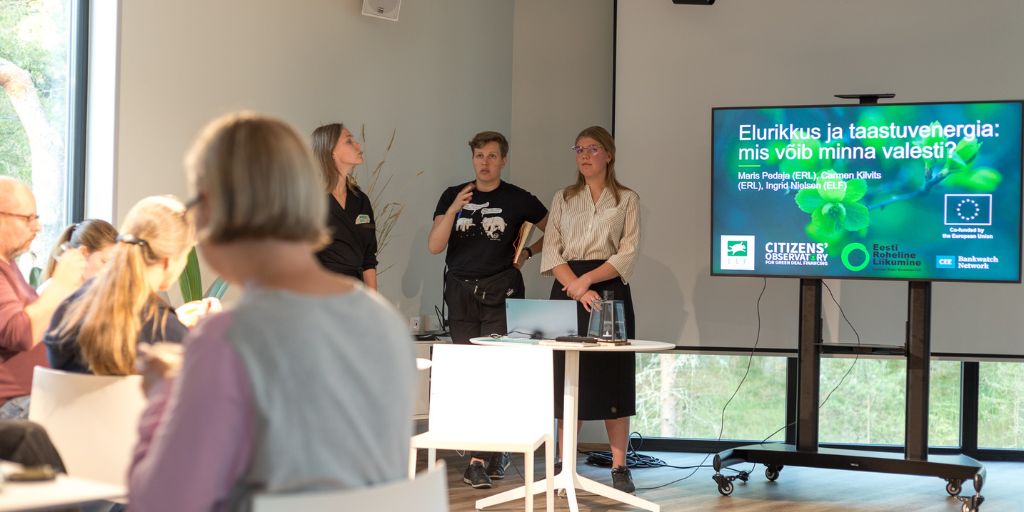
The Climate Network’s Summer Seminar brought together 23 experts and enthusiasts from 13 civil society organisations to discuss and share knowledge about climate change and a sustainable future.
The Summer Seminar aimed to provide a platform for discussions, the exchange of ideas, and finding new solutions related to climate change. The primary goal was to create an environment where participants could pool their knowledge, experiences and contribute together towards a more sustainable future.
The seminar included a series of informative presentations. The Environmental Law Center inaugurated the proceedings with a thought-provoking presentation titled “Adapting to Climate Change: Estonia’s Concerns”. At the heart of this discourse lay a study conducted by the Environmental Law Center, scrutinising the perceptions and apprehensions of Estonian citizens concerning climate change.
Based on the study’s findings, it was revealed that 48 per cent of Estonian residents are concerned about climate change, with 20 per cent of them very concerned, and only 6 per cent not considering climate change a problem at all. The majority, 46 per cent, are convinced that climate change can have a significant impact in the future. Interest in institutions dealing with climate change adaptation was shown by 50 per cent of respondents, while 21 per cent were not interested in the topic. The responses identified various human rights affected by climate change, including health, life, home, privacy, and equal treatment of generations. Regarding the need to seek judicial protection of these rights, respondents’ opinions were different: 22 per cent considered it somewhat justified, 10 per cent completely justified. In general, it can be concluded that Estonian residents express concern about the effects of climate change and are interested in receiving relevant information and protecting rights in various contexts.
Another presentation emphasised the imperativeness of adapting to climate change. It underlined challenges climate change posed to Estonia, including escalating temperatures, intensifying precipitation, and an upsurge in extreme weather events. Solutions proposed spanned from augmenting green spaces in urban areas to bolstering disaster preparedness. The comprehensive overview of governmental and institutional roles across various sectors included responsibilities of different ministries, local governments, and their interconnected roles in addressing climate change.
The significance of legal frameworks was underscored by climate policy expert, who championed the swift adoption of the Climate Act, underpinned by scientific rigor and broad consensus. A member of the Climate Council, emphasised the crucial symbiosis between scientific foundation and community support.
The first day concluded with a group viewing of the newly produced Estonian Green Movement video Renewable Energy and Biodiversity – what can go wrong? followed by a discussion with the members. The discussion focused on the impact of the reform for accelerating the permitting of renewable energy on biodiversity. The main conclusions by the Climate Network’s members were the need to protect biodiversity during the acceleration of renewable energy, simultaneous action on biodiversity and the climate crisis, and emphasized the need to agree on the volume of renewable energy before creating new facilities. The discussion highlighted the significance of careful assessment and targeted communication in transitioning to clean energy sources.
The second day pivoted towards a thoughtful exploration of degrowth — a philosophy advocating conscientious resource usage to ensure both ecological harmony and societal well-being. Contrary to misconceptions, degrowth does not repudiate economic growth or technological advancement but seeks a holistic, balanced trajectory.
In summation, the Climate Network’s Summer Seminar was a focal point for intellectual convergence, offering a platform for the articulation of concerns, the exploration of novel ideas, and the collective pursuit of a more sustainable future.

